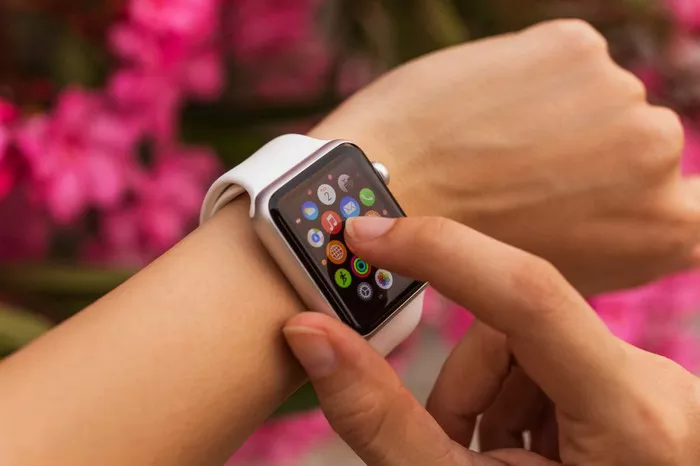A Lanarkshire mother is crediting her Apple Watch with potentially saving her toddler’s life after the device detected an unusually high heart rate, which led to a critical diagnosis of leukaemia.
Rebecca Martin, from Motherwell, noticed that her three-year-old daughter, Florence, had an elevated heart rate, which was detected by the Apple Watch on January 22. The smartwatch registered Florence’s heartbeat at over 100 beats per minute, a figure that raised alarm bells given the child’s ongoing struggle with a persistent cold.
“Florence had been unwell since December, and her condition just didn’t seem to improve,” Rebecca explained. “When I felt her heart beating rapidly, I used my Apple Watch to check her heart rate. The reading was surprisingly high, which didn’t make sense considering she had spent the day resting on the couch.”
In addition to the high heart rate, Florence’s complexion began to appear yellow, prompting Rebecca to seek medical attention. The following morning, the family visited their local GP, who confirmed the high heart rate and referred them to Wishaw General Hospital. Florence was subsequently transferred to the Royal Hospital for Sick Children in Glasgow, where she was diagnosed with acute lymphoblastic leukaemia on January 26.
Rebecca, who described the news as a devastating shock, said, “We were completely blindsided. It felt like our entire world had been turned upside down. To hear that your child has cancer is every parent’s worst nightmare.”
Despite the overwhelming circumstances, Rebecca expressed gratitude for the early warning provided by the Apple Watch. “I’m so thankful the watch alerted us to Florence’s elevated heart rate. It made us realize that something serious was happening, prompting us to seek medical help promptly.”
Florence, who was previously a lively nursery pupil, has endured a rigorous treatment regime, including seven months of chemotherapy that severely compromised her immune system. During this period, she missed out on regular activities such as nursery and swimming to avoid infections. Now in remission, Florence faces an additional 18 months of maintenance therapy to prevent a relapse.
Rebecca acknowledged the difficulty of balancing her daughter’s health with maintaining a semblance of normal childhood experiences. “It has felt like living through Covid again, trying to protect Florence from even minor illnesses due to her weakened immune system,” she said. “Despite everything, she remains incredibly resilient and often comforts me when I’m feeling overwhelmed.”
The Martin family has expressed deep appreciation for the medical staff at the Schiehallion Ward of the Royal Hospital for Sick Children. In a gesture of gratitude, Rebecca plans to scale Schiehallion hill on September 7 to raise funds for the ward.
“The care and support we’ve received have been phenomenal,” Rebecca remarked. “The medical team has been extraordinary, making a difficult time more bearable. I look forward to giving back and supporting them as they have supported us.”
Florence’s journey continues as she prepares to start school next August, with her family focused on her continued recovery and well-being.

